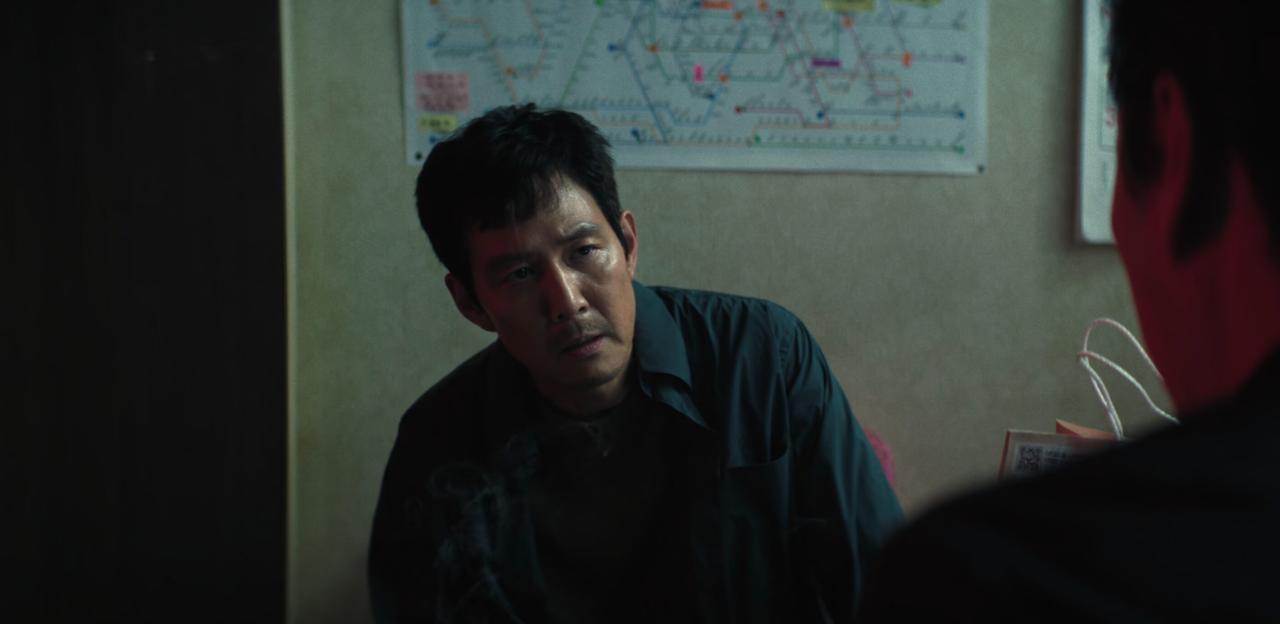Squid Game Histoire Vraie? The hit Netflix series sparked intense debate: is it pure fiction, or does it reflect harsh realities? This exploration dives into the socio-economic pressures in South Korea, comparing the show’s depiction of debt and desperation with real-life struggles. We’ll uncover the cultural context, analyze the social commentary, and examine the psychological impact of extreme pressure as portrayed in the show and experienced in real life.
We’l
So you’re wondering about the “Squid Game histoire vraie” – is it based on a true story? The show’s brutal games definitely hit hard, but the inspiration is more about societal pressures than any single event. However, thinking about the intense surveillance in the show, it makes you consider things like the increasingly complex regulations, check out the new rules for drone use in Canada by visiting new drone rules canada , to see how technology is regulated.
It’s a different kind of pressure, but still relevant when considering the themes of “Squid Game histoire vraie”.
l examine the cultural significance of competition in Korean society, comparing the games in “Squid Game” to traditional Korean games. We’ll also analyze the show’s commentary on class inequality and its reflection of real-world social stratification in South Korea. Finally, we’ll explore the powerful visual elements used to convey despair and hope, delving into the symbolism and emotional impact of specific scenes.
So you’re wondering about “Squid Game histoire vraie”? While the show’s fictional, the desperation it portrays is sadly real for many. Think about the sheer scale of coordinated effort, like in a spectacular display, such as the chinese dragon drone show , which requires immense planning and precision. That level of organization, though for vastly different purposes, highlights the potential for both incredible artistry and terrifying control, echoing themes in “Squid Game histoire vraie”.
The Reality of Debt in South Korea and its Reflection in “Squid Game”: Squid Game Histoire Vraie

The South Korean drama “Squid Game” captivated audiences worldwide with its depiction of desperate individuals competing in deadly children’s games for a massive cash prize. While fictional, the show starkly reflects the harsh realities of debt and socioeconomic inequality in South Korea. This section will explore the socio-economic factors contributing to extreme debt situations, the prevalence of high-interest loans, and real-life stories mirroring the show’s desperate scenarios.
Socio-Economic Conditions and Extreme Debt
South Korea’s highly competitive society, coupled with a rigid social hierarchy and pressure to succeed, contributes significantly to high debt levels. The emphasis on education and securing prestigious jobs often leads individuals to accrue substantial student loan debt. Furthermore, the cost of living, particularly in major cities like Seoul, is exceptionally high, placing further strain on finances. Job insecurity and the gig economy add to the vulnerability of many, making them susceptible to predatory lending practices.
High-Interest Loans and Vulnerable Populations
The accessibility of high-interest loans, often targeting vulnerable populations, exacerbates the debt crisis. These loans, while offering quick access to funds, trap borrowers in a cycle of debt due to exorbitant interest rates and fees. Individuals struggling with existing debt often resort to these loans, further deepening their financial predicament. This creates a vicious cycle that mirrors the desperation portrayed in “Squid Game”.
Real-Life Stories of Debt Struggles
Numerous news reports and personal accounts detail the struggles of individuals overwhelmed by debt in South Korea. Stories of families losing their homes, facing bankruptcy, and even resorting to extreme measures due to insurmountable debt are not uncommon. While the games in “Squid Game” are fictional, the desperation and the life-or-death stakes are tragically relatable to the experiences of many South Koreans struggling under the weight of financial burden.
For example, news reports frequently highlight the increasing number of suicide cases linked to debt-related stress.
“Squid Game” and the Reality of Debt in South Korea
The show’s depiction of debt-ridden individuals participating in deadly games for survival serves as a powerful metaphor for the desperation and hopelessness experienced by many in South Korea facing crippling debt. While the extreme violence is fictional, the underlying societal pressures and the consequences of financial ruin are strikingly realistic.
Survival Games and Korean Culture
The games in “Squid Game,” while deadly and extreme, draw inspiration from traditional Korean children’s games. This section will analyze the cultural significance of competition and survival in Korean society and explore the connection between traditional games and the show’s violent depiction.
Competition and Survival in Korean Culture, Squid game histoire vraie
Korean culture places a strong emphasis on competition and achievement. From a young age, individuals are often immersed in a highly competitive educational system and societal expectations for success. This competitive spirit, while driving innovation and economic growth, can also lead to intense pressure and stress, contributing to the desperation portrayed in “Squid Game”.
Traditional Korean Games and Their Depiction
Many of the games in “Squid Game” are based on traditional Korean children’s games, albeit with a deadly twist. This juxtaposition highlights the stark contrast between innocent childhood memories and the brutal realities faced by the participants. The familiarity of the games makes the violence all the more shocking and impactful, underscoring the desperate measures individuals are willing to take when facing extreme circumstances.
Desperation and Societal Pressure
The series masterfully depicts the desperation and societal pressure driving the characters’ actions. The overwhelming debt and lack of viable alternatives force them into a situation where risking their lives seems like the only option. This desperation is a direct reflection of the societal pressures and economic struggles faced by many in South Korea.
Comparison of Games: Squid Game vs. Traditional Korean Games
The following table compares the games in “Squid Game” with their real-life Korean counterparts, highlighting both similarities and differences.
| Squid Game Game | Traditional Korean Game | Similarities | Differences |
|---|---|---|---|
| Red Light, Green Light | 무궁화 꽃이 피었습니다 (Mugunghwa kkochi pieotseumnida) | Basic rules and premise | Deadly consequences in Squid Game |
| Honeycomb (Dalgoona) | 뽑기 (Ppokki) | Shape-cutting challenge | Life-or-death stakes in Squid Game |
| Tug-of-War | 줄다리기 (Juldariki) | Team-based strength competition | Elimination and death in Squid Game |
| Marbles | 구슬치기 (Guseulchigi) | Skill and strategy involved | High stakes and betrayal in Squid Game |
Social Commentary and Class Inequality in “Squid Game”
Beyond the thrilling games, “Squid Game” offers a potent social commentary on class inequality and social stratification in South Korea. This section will delve into the different social classes depicted, their representation within the games, and real-life parallels in South Korean society.
Social Commentary on Class Inequality
“Squid Game” vividly portrays the stark realities of class inequality in South Korean society. The participants, largely drawn from marginalized and economically disadvantaged backgrounds, are pitted against each other in a desperate struggle for survival. The stark contrast between their impoverished lives and the opulent lifestyle of the game organizers highlights the vast chasm between the rich and the poor.
Depiction of Social Classes

The show clearly depicts different social classes: the impoverished participants, struggling to make ends meet; the middle-class individuals caught in the middle; and the ultra-wealthy elite who orchestrate the games for their entertainment. This stratification is reflected in the characters’ backgrounds, motivations, and interactions within the games.
Real-Life Social Inequalities in South Korea
The social inequalities depicted in “Squid Game” resonate with real-life conditions in South Korea. The country’s high level of economic inequality, coupled with limited social mobility, leaves many vulnerable to financial hardship and social exclusion. This mirrors the desperation and lack of opportunities faced by the characters in the show.
Social Commentary Points
- The extreme disparity between the wealthy elite and the impoverished masses.
- The systemic issues contributing to economic inequality and social stratification.
- The lack of social safety nets and support for vulnerable populations.
- The dehumanization of the impoverished and their exploitation by the wealthy.
- The moral implications of unchecked capitalism and social Darwinism.
The Psychological Impact of Extreme Pressure
The high-stakes games in “Squid Game” push the participants to their psychological limits, revealing the devastating impact of extreme pressure and desperation on human behavior. This section will examine the psychological toll on the characters and the ethical implications of the games.
Psychological Impact of Extreme Pressure
The intense pressure and life-or-death situations in “Squid Game” trigger a range of psychological responses in the characters. Fear, anxiety, paranoia, and desperation become dominant emotions, leading to impulsive actions, moral compromises, and even acts of violence. The show vividly portrays the breakdown of social bonds and the erosion of human empathy under extreme stress.
Ethical Implications and Dehumanization

The ethical implications of the games are profound. The dehumanization of the participants, treated as mere pawns in a cruel game, raises serious questions about morality, exploitation, and the limits of human cruelty. The show serves as a cautionary tale about the dangers of unchecked power and the potential for societal structures to devalue human life.
Psychological States Under Immense Pressure
Characters experience a wide spectrum of psychological states, including: acute stress, moral dilemmas, survival instincts overriding ethical considerations, extreme emotional volatility, dissociation, and the breakdown of social norms and empathy. The constant threat of death exacerbates these conditions.
So, you’re wondering about “Squid Game histoire vraie”? While the show’s fictional, the desperation it portrays is sadly real for many. Think about the scale of that desperation – imagine a future spectacle like the shanghai drone show 2038 , but instead of light shows, it’s a desperate struggle for survival. That’s the chilling undercurrent of “Squid Game histoire vraie” – the harsh reality behind the games.
Hypothetical Psychological Study
A hypothetical psychological study could explore the impact of high-stakes survival situations on human behavior. Such a study could investigate factors like group dynamics, moral decision-making under pressure, and the long-term psychological effects of experiencing extreme trauma and violence. Ethical considerations would be paramount in designing such a study.
Visual Representations of Despair and Hope in “Squid Game”
The visual elements of “Squid Game” are crucial in conveying the emotional intensity of the narrative. This section will analyze the use of color palettes, lighting, and camera angles to create a powerful emotional impact.
Visual Elements Portraying Despair and Hope
The show employs a striking visual language to depict both despair and fleeting moments of hope. The stark contrast between the vibrant colors of the game sets and the drab, impoverished surroundings of the participants’ lives underscores the disparity between their dreams and their reality. The use of lighting, often harsh and unforgiving, emphasizes the oppressive atmosphere of the games, while moments of softer lighting suggest brief instances of human connection and hope.
Color Palettes, Lighting, and Camera Angles
The vibrant, almost cartoonish colors of the game sets are juxtaposed against the muted tones of the participants’ lives, creating a visual dissonance that highlights the surreal nature of their situation. Harsh lighting during the games creates a sense of unease and tension, while softer lighting in moments of human connection provides a counterpoint. Camera angles are often used to emphasize the vulnerability of the participants, while wide shots highlight the scale of the games and the overwhelming power of the organizers.
Symbolism of Key Visual Elements
The color green, associated with the game sets and the surrounding landscape, symbolizes both hope and danger. It represents the promise of a better life, yet simultaneously underscores the precariousness of the participants’ situation. The setting of the games, a secluded and isolated location, symbolizes the isolation and alienation experienced by the participants.
Description of a Particularly Impactful Scene
The final game of marbles, played between Gi-hun and Sang-woo, is a particularly impactful scene. The close-up shots of their faces reveal their inner turmoil and desperation. The muted lighting and somber atmosphere emphasize the gravity of their situation. The contrasting emotions of betrayal and loyalty are visually depicted through the subtle shifts in their expressions and body language.
The scene culminates in a devastating act of betrayal, underscoring the destructive power of desperation.
Conclusion
While “Squid Game” is undeniably a work of fiction, its unsettling portrayal of debt, desperation, and social inequality resonates deeply with the realities faced by many in South Korea and beyond. The show’s success lies in its ability to highlight these issues, prompting viewers to reflect on the human cost of societal pressures and the importance of empathy and social justice.
By exploring the cultural context and psychological impact of extreme pressure, we gain a richer understanding of the show’s enduring power and its unsettling relevance to the real world.
Popular Questions
Was Squid Game inspired by a true story?
No, Squid Game isn’t based on a single true story. However, it draws inspiration from real-world issues like South Korea’s high debt rates and societal pressures.
Are the games in Squid Game based on real Korean games?
Some games share similarities with traditional children’s games, but the deadly stakes are purely fictional.
How accurate is the portrayal of debt in South Korea in Squid Game?
While exaggerated for dramatic effect, the show highlights the very real struggles many Koreans face with debt and economic hardship.
What is the show’s overall message?
The show offers a powerful commentary on social inequality, the desperation born from extreme poverty, and the human cost of unchecked capitalism.
